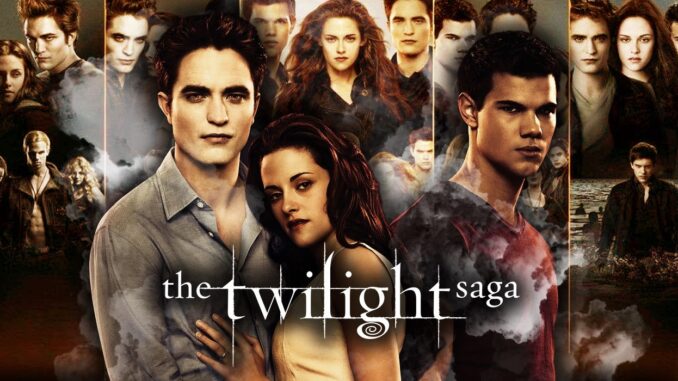
The Undying Spark: Why Twilight Still Captivates After a Decade
The year is 2008. Skinny jeans and side bangs reign supreme. And in the world of pop culture, a quiet storm is brewing in the misty forests of Forks, Washington. Stephenie Meyer's Twilight saga, already a book phenomenon, explodes onto the silver screen, launching a cultural juggernaut that, even over a decade later, continues to ignite passionate devotion and attract new generations of fans. While often critiqued for its plot holes, romanticized toxicity, and questionable portrayal of female empowerment, Twilight endures, its enduring appeal stemming from a potent cocktail of escapism, relatable anxieties, and the timeless allure of forbidden love.
One of the most compelling reasons for Twilight's longevity is its ability to transport audiences to a world that is both familiar and fantastical. The rain-drenched landscapes of Forks, brought to life with stunning cinematography, offer an idyllic escape from the mundane. Within this setting, ordinary teenagers grapple with everyday struggles – the awkwardness of first love, the pressure of school, the feeling of being an outsider. Bella Swan, in particular, embodies the anxieties and insecurities that plague adolescence. She is clumsy, self-deprecating, and desperate to belong, making her instantly relatable to a young audience yearning for connection and acceptance. By placing these relatable characters in a supernatural world populated by vampires and werewolves, Twilight elevates the ordinary to the extraordinary, offering a vicarious escape into a world where the anxieties of adolescence are intertwined with the thrilling possibilities of the unknown.
Furthermore, Twilight taps into the primal human desire for intense, all-consuming love. The romance between Bella and Edward Cullen is dramatic, dangerous, and utterly consuming. Edward, the brooding, eternally youthful vampire, embodies the archetype of the dark and mysterious romantic hero. He possesses unparalleled power, otherworldly beauty, and a fierce possessiveness that, while problematic when viewed through a contemporary lens, fueled the desires of a generation seeking a love that transcends the ordinary. This forbidden love, fraught with peril and fueled by a potent combination of vulnerability and adoration, offers a tantalizing glimpse into a world where love conquers all, even mortality itself. The inherent drama and potential for tragedy only serve to intensify the romantic appeal, creating a narrative that is both thrilling and emotionally resonant.
Beyond the central romance, Twilight explores universal themes of identity, loyalty, and sacrifice. Bella's journey is one of self-discovery as she navigates the complexities of her identity in the face of extraordinary circumstances. The unwavering loyalty displayed by the Cullen family, the fierce protectiveness of the werewolf pack, and the ultimate sacrifice that each character is willing to make for the sake of the others underscore the enduring importance of connection and belonging. These themes resonate deeply with audiences who are grappling with their own place in the world, searching for their own "tribe," and questioning the values that they hold dear.
However, it is impossible to ignore the criticisms leveled against Twilight. The romanticization of toxic relationship dynamics, the stereotypical portrayal of gender roles, and the lack of true female agency are all valid points of critique. Yet, these flaws, paradoxically, may also contribute to the saga's enduring appeal. For many, Twilight represents a specific moment in time, a nostalgic reminder of their own teenage angst and the unadulterated intensity of first love. The flaws, viewed through the lens of nostalgia, become part of the overall charm, a reminder of a simpler, perhaps more naive, time.
In conclusion, the enduring appeal of The Twilight Saga after more than a decade is a testament to its ability to tap into fundamental human desires for escapism, connection, and love. While its flaws are undeniable, its strengths – its captivating setting, relatable characters, and exploration of universal themes – continue to resonate with audiences of all ages. Twilight offers a tantalizing glimpse into a world where the ordinary is intertwined with the extraordinary, where love transcends mortality, and where the anxieties of adolescence are amplified by the thrill of the unknown. It is this intoxicating combination that ensures that the undying spark of Twilight will continue to captivate audiences for years to come, reminding us of the power of romance, the allure of the forbidden, and the enduring magic of a story that dares to dream of a love that lasts forever.
